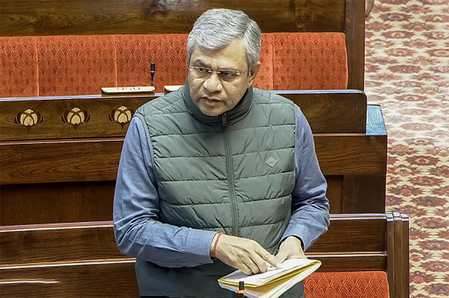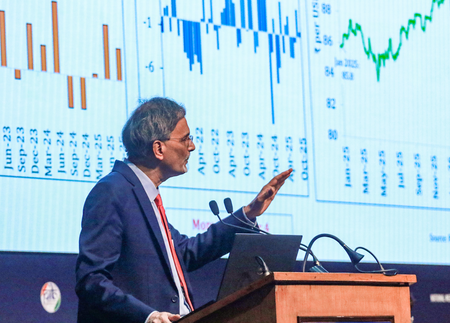
Chennai, Feb 11 (IANS) Scientists at the Indian Space Research Organization (ISRO) and Indian Institute of Technology (IIT) Madras have indigenously developed a semiconductor chip for space applications.
The ‘IRIS’ (Indigenous RISCV Controller for Space Applications) chip was developed from the ‘SHAKTI’ processor baseline. It can also be used in diverse domains, from IoT to computing systems, for strategic needs.
The development of the chip was part of the effort to indigenise semiconductors used by ISRO for its applications, command and control Systems, and other critical functions aligning with its march towards ‘Atmanirbhar Bharat’ in space technologies.
“This marks truly a milestone in “Make in India” efforts in semiconductor design and fabrication,” said Dr. V Narayanan, Chairman of ISRO.
“I am sure that this high-performance controller, realised as per our requirements, will contribute significantly to future embedded controllers for space mission-related applications. It is planned to flight test a product based on this controller shortly, and performance will be confirmed,” he added.
Narayanan also expressed his satisfaction with the successful end-to-end development of the IRIS Controller using Indian resources.
The ISRO Inertial Systems Unit (IISU) in Thiruvananthapuram proposed the idea of a 64-bit RISC-V-based Controller and collaborated with IIT Madras in defining the specifications and designing of the semiconductor chip.
The chip configuration addressed the common functional and computing requirements of existing sensors and systems used in ISRO missions. Fault-tolerant internal memories were interfaced to the SHAKTI core, enhancing the reliability of the design.
“After RIMO in 2018 and MOUSHIK in 2020, this is the third SHAKTI chip we have fabricated at SCL Chandigarh and successfully booted at IIT Madras. That the chip design, chip fabrication, chip packaging, motherboard design, and fabrication, assembly, software, and boot — all happened inside India, is yet another validation that the complete semiconductor ecosystem and expertise exist within our country,” said Prof. V. Kamakoti, Director, IIT Madras.
–IANS
rvt/




